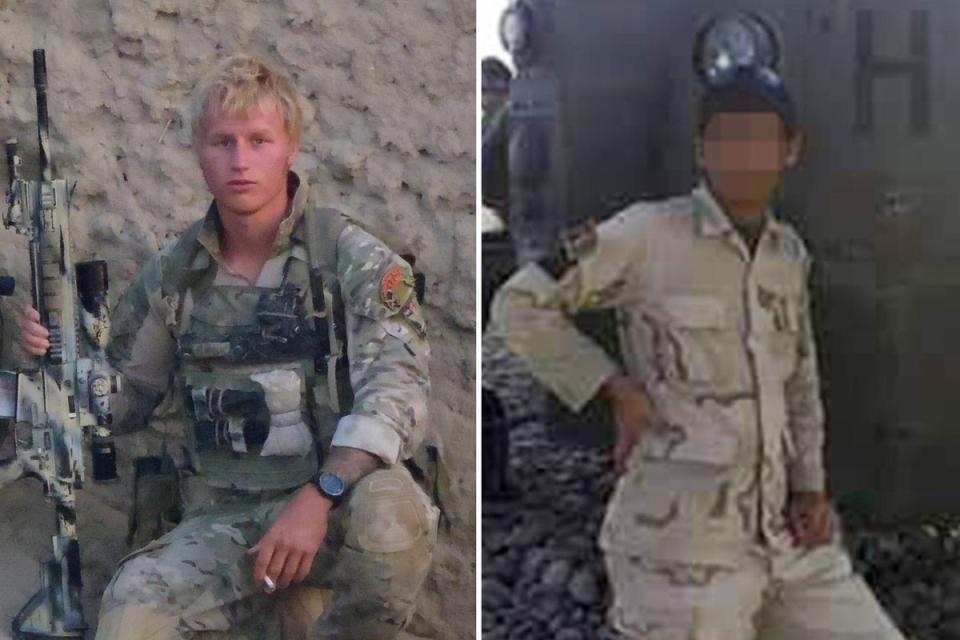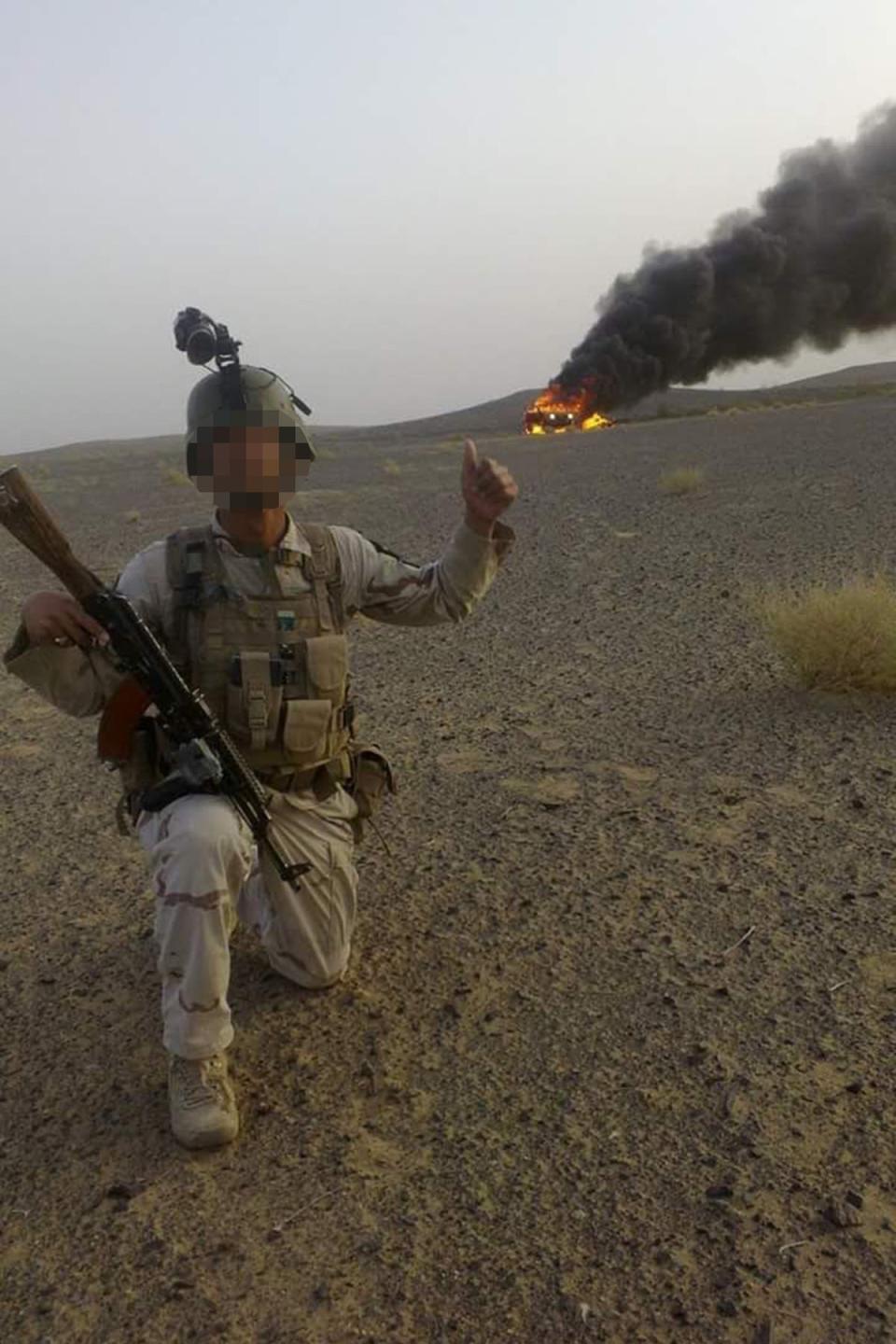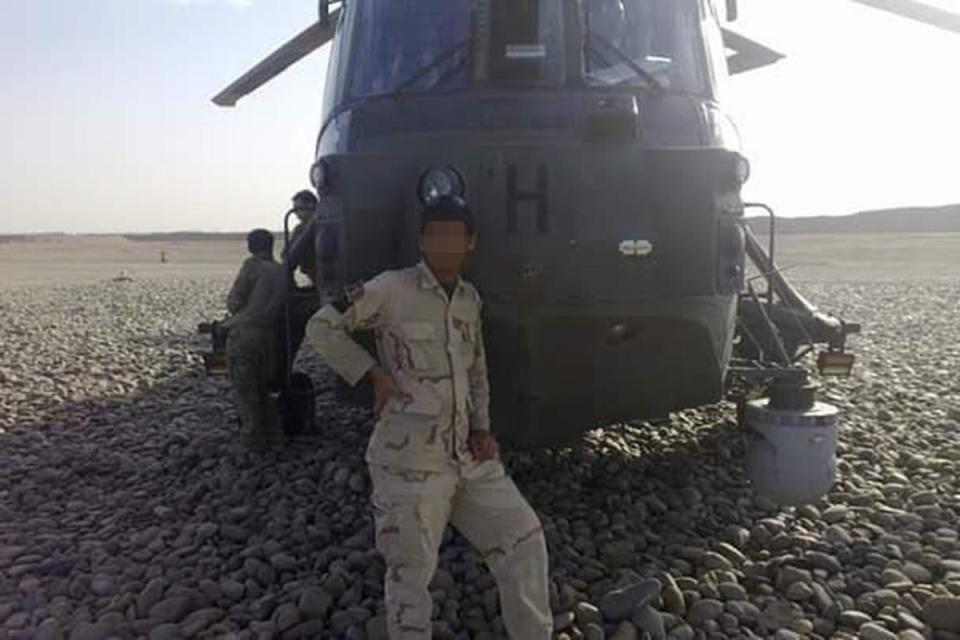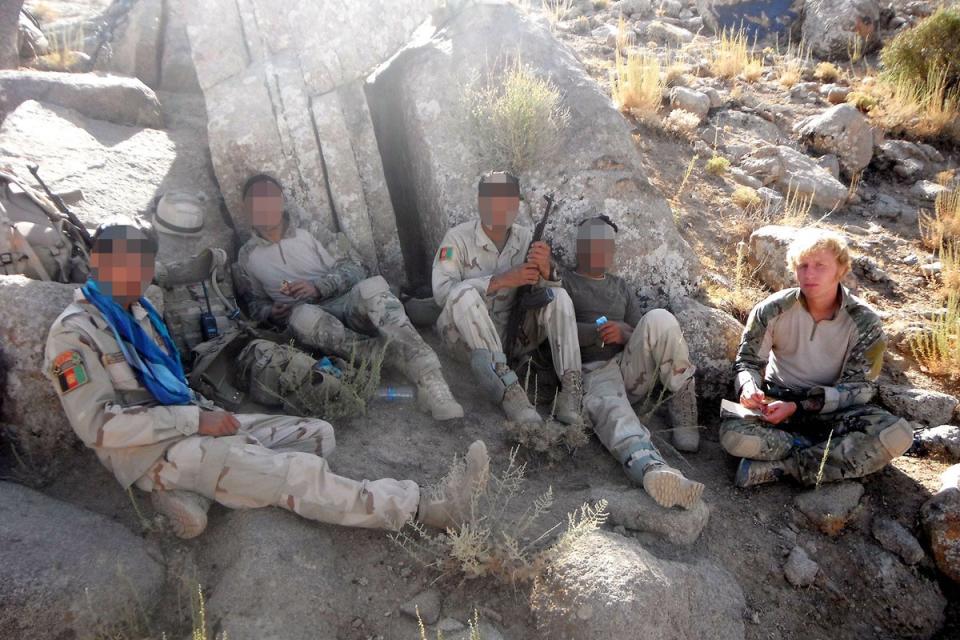British army veteran’s final mission to give brave Afghan comrade a UK home
A British army veteran has urged Rishi Sunak’s government to give his Afghan former comrade a home after he was forced to flee Kabul in fear of his life and denied help by Britain – despite risking his life to fight with the UK against the Taliban.
Alex Isaac, a former paratrooper who was attached to the special forces in Afghanistan, has demanded that officials reverse their decision to deny sanctuary to his former colleague Abdul, who served alongside UK troops – and now fears being sent back to the fundamentalists he managed to escape.
The soldier’s intervention comes after ministers pledged to re-examine the cases of thousands of former Afghan special forces, who had been paid, trained and served alongside British forces but who were denied relocation to the UK following the fall of Kabul in 2021.
The review was prompted by a joint investigation by The Independent, Lighthouse Reports and Sky News which uncovered how some of these soldiers, who served in units known as the Triples, had been subjected to murder and torture at the hands of the Taliban after being refused help by the UK.
In a direct plea to ministers, Alex said: “Here is a really clear example of a Triple who served with us. It’s obvious that he is eligible – and he’s stuck. What are you going to do about it?”

Alex and Abdul, whose name has been changed to protect his family, lived and fought shoulder to shoulder in the dirt and the sand for two tours in 2011 and 2012 – Alex with the 1st Battalion, Parachute Regiment, on a UK special forces tasking, and Abdul with the Afghan Territorial Force 444.
The elite Afghan unit, along with its sister unit Commando Force 333, had been set up by the British to help in their fight against the Taliban and were paid to work alongside the special forces support group.
Abdul managed to escape from Afghanistan following the coalition troops’ withdrawal in 2015 but had his application to come to the UK rejected last year – despite risking his life to work side by side with British troops. He is now living in a Nordic country but fears he will be kicked out at any moment, and is desperate to start a new life in Britain, as he feels he deserves.
He told The Independent: “I want to come to the UK because of my service with the British army. I have family in the UK and my colleagues who I worked with. I served for 10 years with my British colleagues. We are a kind of family. Alex is my brother.
“I believe that if I am in the UK, I will not be scared of my future.”
Many who worked alongside British forces, like Abdul, remain in fear for their lives in Afghanistan and are forced to live in hiding, with the abandonment felt most keenly by the Brits they served alongside – such as Alex.
‘I just feel like I have to get Abdul back, and I will’
When Alex was told his Afghan friend and fellow commando was still alive, he didn’t dare believe it was true.
Having been passed his number by a colleague, he tentatively typed out the Pashto words for “My son”? – a jokey nickname they had used almost a decade before when they fought side by side in Afghanistan – and waited for him to reply.
“When I called him, I could tell he was nearly crying,” Alex said of this first video call with his old friend. “I had a chat with him for about two hours, just going through his family and my family.”
The pair had not seen each other since their time together in their early twenties on operations. They had been part of the “tiger teams” – small teams of Afghan special forces that would be accompanied by a British mentor. Alex had the role of mentor and Abdul was the unit commander.
Peering through the phone on the video call, Abdul didn’t recognise Alex at first because the tousled blonde hair he had during his days as a para had disappeared with age. “He thought I had cancer”, the now-bald Alex said laughing. “He kept asking me, ‘You’re sure you’re not ill?’.”
Abdul himself had grown up, now with a wife and two children, but was ill with stress. His latest temporary residence permit ran out many months ago and he has not heard back about whether he will be allowed to stay in the country that he has tried to make his new home.
Fleeing from Taliban threats after the withdrawal in 2015, Abdul made his way through Europe to a Nordic country after he was advised that he would be safe there as an asylum seeker for a few years.
Speaking to The Independent, Abdul said he has not been able to find work there and he now feels like he is living on borrowed time. He is also now on medication for depression caused by living in limbo.

“I am worried that they will send us back to Afghanistan,” he said.
Some of Abdul’s former colleagues in the ATF444 are now in the UK, having been evacuated in Operation Pitting, and Alex is desperate to give Abdul the same fresh chance for a life in Britain. “I just feel like I have to get Abdul back, and I will,” he said.
Abdul had applied for help in 2021 from the Afghan Relocations and Assistance Policy (Arap) scheme – designed for those who worked with British forces – but had his application rejected. The rejection email said Abdul had not been directly employed by the UK government and his role did not make UK operations in Afghanistan “materially less successful if a role of that nature had not been performed”.
In a joint investigation with Lighthouse Reports and Sky News, The Independent revealed that the Ministry of Defence had wrongly rejected the cases of Triples, even when extensive evidence had been provided to show that they worked alongside the British. Military chiefs said that they could think of no other units “who more loyally or bravely supported our military objectives”.
Our investigation also showed for the first time that the Afghan units had been paid by the British, something the MoD has now accepted to be the case.
The MoD has now promised to re-evaluate all applications for sanctuary from CF333 and ATF444 soldiers – a move that has brought hope that Abdul and his family might be able to find a stable home in the UK.

‘It was the British and Afghans together’
Abdul was one of the first 444 soldiers to get recruited, lying about his age when he signed up because he was younger than 18. “I was 16 when I joined the ATF,” he said. “It was my dream to be in the army and it was a great chance for me.
Of his relationship with Alex, he said: “When something happened to me outside of camp, he would help me. When I got injured in the shoulder in Kandahar, it was the British and the Afghans who helped me together.”
By Alex’s first tour in 2010-11, ATF444 had been operational for two years and the tiger teams were attached to other units, being used as the Afghan eyes on the ground. At the time, no units could go out without an Afghan face.
Initially, it was all mobility operations, with the small team of eight people living off a Ford Ranger for four to six weeks at a time, doing jobs each day and night.
Once the threat from IEDs increased, they started using helicopters to get around. Tiger teams were often brought in to gather information that would then get fed back to HQ and inform operations.

By his second tour, the mission was more offensive: “A tiger team created safety for other units. If the units were stuck in really kinetic areas, they would ask for tiger teams to come in and help push back the front line,” Alex said.
As part of that role, tiger teams were also used to conduct night raids and carry out arrests. As the Brit in the team, who liaised between the tiger team and the host unit, Alex was the navigator and had night vision.
“In the early days, only some of them [Afghans] would have night vision. As I had it, I could GPS into the target and navigate in at night. Some of these areas are just corridors and it is quite hard to pinpoint where you are going, especially at night.
“I would be called the mentor or the adviser and Abdul was the commander but the reality is, they wouldn’t have been able to function without us. Effectively, the Brit was the commander.”
Alex and Abdul came from different backgrounds but when you’re young the differences don’t matter as much, Alex said. Alex liked the Afghan food and so would make a point of eating with his team when they were back at Camp Juno, in Helmand province. He’d give them spare dollars to buy a goat from the local bazaar and they’d all eat it together. As a Brit, he was still their guest and would always be given the best spot at the table and the best food.
Abdul would always call Alex “My son” in Pashto and Alex would respond jokingly with “My daughter”. “There were loads of things where we’d rub off on them, they’d rub off on us,” Alex explained.
Colonel Simon Diggins, former defence attache in Kabul, said the review must be done “quickly and well”.
“It’s unfair that they [the Triples] have been deprived of a chance to come to this country, and there should be no further delay because of bureaucracy and a lack of resources.”
Shadow armed forces minister Luke Pollard said that the government’s treatment of Afghans had been “a shameful saga of failure”.
An MoD spokesperson said: “We are determined to honour our commitments under the Arap scheme, and we have so far relocated 15,600 people to the safety of the UK, including over 3,000 since last October.
“We have announced a reassessment of all decisions on ineligible applications with credible claims to Afghan specialist units, including from those known as ‘the Triples’. The review is being carried out by independent staff who have not previously worked on these applications.”

